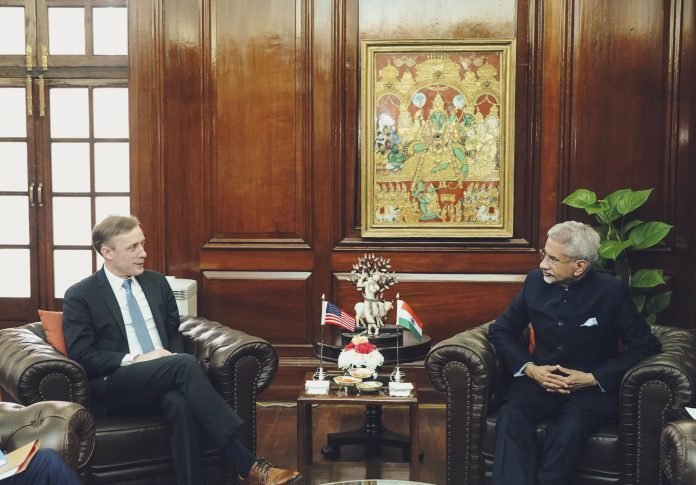External Affairs Minister S. Jaishankar held extensive discussions with US National Security Advisor Jake Sullivan in New Delhi on Monday, marking a significant review of the India-US global strategic partnership over the last four years under the Biden administration.
Sullivan’s visit comes just two weeks ahead of Donald Trump’s inauguration as the 47th President of the United States. The discussions highlighted critical areas of collaboration, including technology, defence, and regional security.
Strengthening Bilateral Ties
In a post on social media platform X, Jaishankar expressed his appreciation for Sullivan’s efforts, stating, “Delighted to meet US NSA @JakeSullivan46 in New Delhi today morning. Continued our ongoing discussions on deepening bilateral, regional and global cooperation. Valued the openness of our conversations in the last four years. Appreciated his personal contribution to forging a closer and stronger India-US partnership.”
The India-US Initiative on Critical and Emerging Technology (iCET) took center stage during the talks. Launched by Prime Minister Narendra Modi and US President Joe Biden in May 2022, iCET aims to foster collaboration in critical technologies, including artificial intelligence, semiconductors, biotechnology, and defence innovation.
High-Level Discussions with NSA Ajit Doval
Sullivan is scheduled to meet his Indian counterpart, NSA Ajit Doval, to further review progress under iCET and bilateral defence cooperation. A Biden administration spokesperson highlighted that the talks would span a broad spectrum of issues, from space and strategic technology cooperation to shared security priorities in the Indo-Pacific and beyond.
Major Advances in Defence Collaboration
The past four years have seen a significant upswing in India-US defence ties. In October, India signed a landmark agreement to procure 31 Predator long-endurance drones from US defence major General Atomics under the foreign military sales route. The $4 billion deal will bolster India’s military capabilities, particularly along its contested borders with China.
- Distribution of Predator Drones:
- Navy: 15 Sea Guardian drones
- Air Force: 8 Sky Guardian drones
- Army: 8 Sky Guardian drones
These high-altitude, long-endurance drones can remain airborne for over 35 hours and are equipped with advanced weaponry, including Hellfire missiles and 450 kg of bombs.
Transformative Initiatives in Technology and Minerals
In addition to defence, the iCET framework unveiled several transformative initiatives last year, including:
- Collaboration in semiconductors
- Development of critical minerals
- Advances in telecommunications
- Defence space cooperation
Strengthening Indo-Pacific Security
Sullivan’s visit underscores the shared commitment to ensuring stability in the Indo-Pacific region, reflecting the growing synergy between the two democracies in addressing global challenges.




